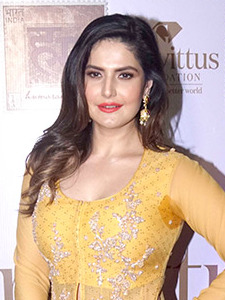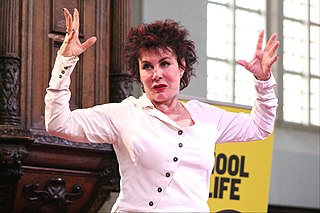A Quote by Zareen Khan
I'm an avid reader so I can go on and on about my recommendation for books but the one book that I would strongly recommend is 'Many Lives, Many Masters' by Dr Brian Weiss. This book has really helped me change my perspective towards a lot of things and also get a better understanding of life.
Related Quotes
In my couple of books, including Going Clear, the book about Scientology, I thought it seemed appropriate at the end of the book to help the reader frame things. Because we've gone through the history, and there's likely conflictual feelings in the reader's mind. The reader may not agree with me, but I don't try to influence the reader's judgment. I know everybody who picks this book up already has a decided opinion. But my goal is to open the reader's mind a little bit to alternative narratives.
As far as nonviolence and Spiritual Activism, Marshall Rosenberg is it! Nonviolent Communication: A Language of Life, is essential reading for anyone who wants to improve their communication skills. Applying the concepts within the book will help guide the reader towards a more loving, compassionate, and nonviolent way of understanding and functioning with others, and foster more compassion in the world. I highly recommend this book.
I am a reader, a flashlight-under-the-covers, carries-a-book-everywhere-I-go?, don't-look-at-my-Amazon-bill. I choose purses based on whether I can cram a paperback into them, and my books are the first items I pack into a suitcase. I am the person who family and friends call when they need a book recommendation or cannot remember who wrote Heidi. My identity as a person is so entwined with my love of reading and books that I cannot separate the two.
I feel lucky that I read so many books as a kid because I know that no matter how much I appreciate a book now, and I can love a book very much, it's never going to be that childhood passion for a book. There's some element, something special about the way they're reading books and experiencing books that's finite.
Write what you want to read. So many people think they need to write a particular kind of book, or imitate a successful style, in order to be published. I've known people who felt they had to model their book on existing blockbusters, or write in a genre that's supposed to be "hot right now" in order to get agents and publishers interested. But if you're writing in a genre you don't like, or modeling yourself on a book you don't respect, it'll show through. You're your first, most important reader, so write the book that reader really wants to read.
If you are interested in happy endings, you would be better off reading some other book. In this book, not only is there no happy ending, there is no happy beginning and very few happy things in the middle. This is because not very many happy things happened in the lives of the three Baudelaire youngsters.
There are many important books on oral history. My book was the launch title in the Understanding Qualitative Research series with Oxford University Press. I think what makes my book and all of the series books unique is the emphasis on writing instruction for researchers who want to use the method being described.
'Brown Girl Dreaming' was a book I had a lot of doubts about - mainly, would this story be meaningful to anyone besides me? My editor, Nancy Paulsen, kept assuring me, but there were moments when I was in a really sad place with the story for so many reasons. It wasn't an easy book to write - emotionally, physically, or creatively.




































